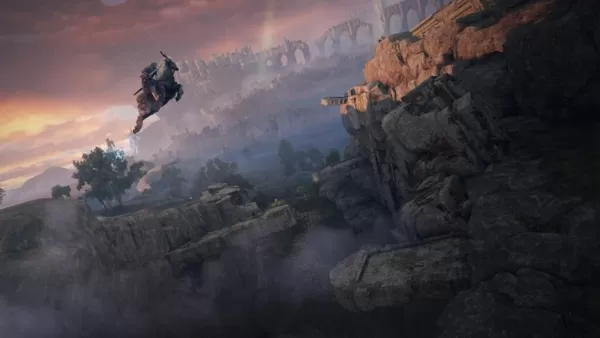Open-world games have traditionally been synonymous with checklists. Maps were littered with markers, mini-maps dictated every move, and objectives often felt more like tasks than adventures. Then came Elden Ring from FromSoftware, which tossed aside the conventional playbook, eliminated the hand-holding, and offered players something truly unique: genuine freedom.
We've collaborated with our partners at Eneba to delve into how Elden Ring has transformed the genre and why it's something to marvel at.
A World That Doesn’t Beg for Your Attention
Unlike most open-world games that vie for your constant attention with incessant pop-ups directing where to go, what to do, and why it matters, Elden Ring takes a subtler approach—it whispers. It presents a vast, enigmatic landscape and entrusts you to navigate it on your own terms.
There are no obtrusive UI elements clamoring for your attention; instead, your curiosity leads the way. If something on the horizon piques your interest, go explore. You could discover a concealed dungeon, a formidable weapon, or a monstrous boss ready to challenge you.
The beauty of it? No level scaling. The world remains constant; you adapt to it. If an area proves too tough, revisit it later—or don't. No one's stopping you from attempting to battle a dragon at level five with a broken sword. Just don't be shocked when you're turned to ash.
It's never too late to venture into the Lands Between, especially when at Eneba, where an Elden Ring Steam key is surprisingly affordable.
Exploration Feels Like Discovery, Not a Checklist
In many open-world games, exploration feels more about ticking boxes than embarking on an adventure. You dash from one map marker to another, checking off tasks like mundane errands. Elden Ring turns this notion on its head.
There's no quest log telling you precisely where to go. NPCs offer cryptic clues, distant landmarks beckon without explanation, and the game never pauses to clarify anything.
 This might seem daunting, but it's precisely what makes exploration so gratifying. Each cave, ruin, and fortress feels like your personal discovery. No one directed you there—you found it because you were curious.
This might seem daunting, but it's precisely what makes exploration so gratifying. Each cave, ruin, and fortress feels like your personal discovery. No one directed you there—you found it because you were curious.
Moreover, unlike games where loot feels arbitrary, in Elden Ring, every reward is significant. Stumble upon a hidden cave, and you might emerge with a game-altering weapon or a spell that lets you summon a literal meteor storm.
The Joy of Getting Lost (and Surviving)
While most games consider getting lost a setback, in Elden Ring, it's an integral part of the experience. You might take a wrong turn and find yourself in a poison swamp (because, of course, there's a poison swamp). You could wander into what you thought was a peaceful village, only to be ambushed by grotesque creatures. Yet, these moments make the world feel vibrant and alive.
The game doesn't guide you by the hand, but it does scatter clues. A statue might point toward a subterranean treasure. A mysterious NPC might allude to a hidden boss. If you're attentive, the world subtly steers you without confining you to a predetermined route.
Open-World Games Will Never Be the Same?
Post-Elden Ring, there's no turning back. FromSoftware has demonstrated that players don't need incessant guidance to enjoy an open world—they crave mystery, challenge, and the thrill of discovery. We can only hope other developers take heed.
If you're eager to immerse yourself in a world that doesn't just encourage exploration but insists upon it, digital marketplaces like Eneba offer fantastic deals on all things gaming. Whether it's Elden Ring or other must-play titles, your next adventure is always just a few clicks away.















